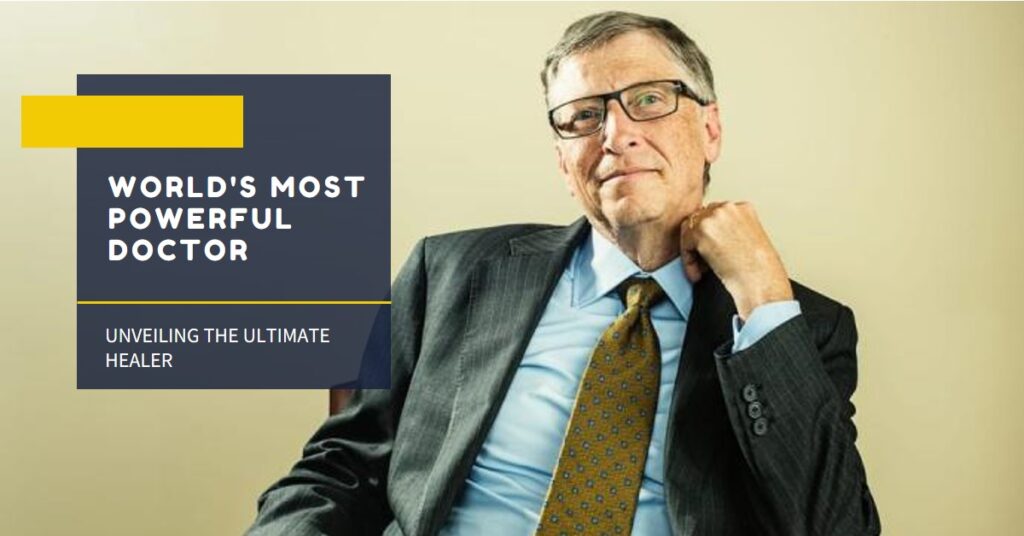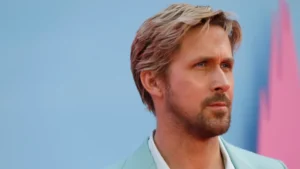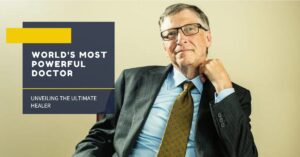Who is the most powerful Doctor in the World: Meet Bill Gates.
5 min read
One of the most ambitious health campaigns in history is the global effort to eradicate polio, strongly championed by Gates...
In global health, few figures command as much influence as Bill Gates. Though not a medical doctor, his impact on shaping health initiatives worldwide has earned him a status that rivals many in the medical field. Through his philanthropic work, Gates has become a gigantic force in global health, leaving many to wonder, “Could Bill Gates be considered the most powerful doctor without actually holding the title?”
The Gates Foundation: A Major Force in Global Health
Founded in 2000, the Bill and Melinda Gates Foundation has quickly emerged as a leading entity in health funding, steering major international health efforts. Today, it stands as the second-largest donor to the World Health Organization (WHO), second only to the U.S. government. With more than $2.4 billion directed toward global health causes, the foundation’s financial contributions have had a transformative effect on how the world tackles its biggest health challenges.
One of the foundation’s key goals has been the eradication of polio, a cause close to Gates’s heart. The foundation’s influence is reflected in WHO’s budget, where roughly a quarter of funds dedicated to fighting polio come from Gates’s contributions. This involvement in both funding and guiding health initiatives continues to fuel the debate about Gates’s unparalleled influence in global health, even without a medical degree.
Criticisms and Concerns
While Gates’s contributions have been massive, his role has not been without criticism. Detractors argue that the Gates Foundation’s priorities may overly dictate WHO’s focus, potentially sidelining the needs of less powerful member countries. The strong emphasis on polio eradication, for instance, has led to concerns that other pressing health issues are being neglected. This imbalance has fueled ongoing debates about whether Gates wields too much power in the world of medicine.
There are also concerns about possible conflicts of interest. The foundation’s ties to major corporations have raised eyebrows, with critics questioning whether WHO initiatives might unintentionally align with corporate goals over public health needs. This controversy came to a head when 30 health advocacy groups protested against granting the Gates Foundation official partnership status with WHO, citing fears of undue influence.
Also read you like this : Billie Eilish Tattoos
Protecting WHO’s Independence
To address these concerns, WHO member states have taken steps to safeguard the organization’s independence. New policies aim to prevent over-reliance on any single private entity, including the Gates Foundation. WHO-funded projects must have the backing of its 194 member countries, ensuring that decision-making remains collective and transparent.
Additionally, the Gates Foundation’s partnership with WHO is based on a three-year agreement that emphasizes transparency and alignment with member states’ priorities. This approach is designed to balance the foundation’s influence while maintaining WHO’s commitment to the greater public good.
The Polio Eradication Debate
One of the most ambitious health campaigns in history is the global effort to eradicate polio, strongly championed by Gates. Tremendous progress has been made in reducing polio cases, but the intense focus on this single disease has sparked discussions about resource distribution. Critics argue that while polio has seen massive funding, other critical health areas have been left underfunded.
The 2014 Ebola crisis highlighted these concerns. WHO’s lack of sufficient resources for infectious disease preparedness revealed the risks of prioritizing specific diseases over strengthening broader health systems. This has led to further reflection on the role of large philanthropic organizations.
In the end, Bill Gates’s influence on global health is undeniable, yet it continues to raise important questions about balance, power, and the direction of international health efforts.
Looking Forward: The Post-Polio Dilemma
As the world edges closer to eradicating polio, new questions arise about the future of the billions in funding currently dedicated to this fight. This raises yet another facet of the ongoing debate—”Who truly holds the most power in global health?” There are concerns about what might happen if the Gates Foundation scales back its contributions after this long-sought victory. Could there be a significant funding gap that leaves other critical health programs in jeopardy?
WHO and its global partners are already strategizing a transition plan. The goal is to ensure that the funds currently funneled into polio efforts continue to support vulnerable regions and vital health services, even after the disease is defeated.
Global View: Diplomacy and Perception
Despite the criticisms, diplomats and health leaders from around the world generally view the Gates Foundation’s role positively. Many recognize the risks of concentrated private influence but still appreciate the foundation’s role in driving forward progress on key global health initiatives.
The foundation’s work often complements WHO’s efforts, channeling resources where they’re most needed and bringing key donors together. This collaboration has undeniably pushed global health forward, but it continues to ignite discussions about the foundation’s outsized role and whether that influence tips the balance of power.
Influence on WHO Leadership and Governance
Gates’s influence extends beyond donations—it also touches the leadership and decision-making within WHO itself. As WHO undergoes leadership transitions, the Gates Foundation’s presence remains prominent, raising the question of how much private donor input impacts governance. WHO must walk a fine line between engaging with influential donors like Gates while maintaining its independence as a global organization representing 194 countries.
The organization’s commitment to collective decision-making and transparency is key to ensuring that its agenda remains reflective of all its members, not just the interests of its biggest donors. The balancing act between maintaining WHO’s autonomy and incorporating the input of powerful private entities is an ongoing challenge.
Bill Gates has unquestionably left a lasting imprint on global health. Through the Bill and Melinda Gates Foundation, he has injected vast sums of money and resources into combating diseases and improving health outcomes across the globe. His relentless push for polio eradication has sparked intense discussions about how health priorities are set—and by whom.
When we think of the most powerful doctor in the world, we usually picture someone in a white coat or a stethoscope. Instead, we’re talking about Bill Gates—the tech visionary behind Microsoft who has become one of the most influential figures in global health. Gates’ immense wealth, vision, and philanthropic work have propelled him to a status that rivals the most seasoned professionals in the medical field.
Bill Gates has reached beyond government, research, and industry, becoming a global leader in health policy. When Gates speaks, people listen. By combining technology, public health initiatives, and policy reform, he has helped create a healthier world for millions.
Gates is the most powerful “doctor” in the world—by sheer influence. His work in shaping global health policy, eliminating diseases, and driving medical innovation is unmatched.






